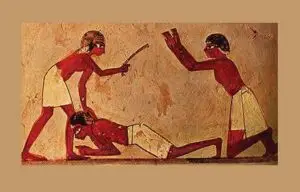In Jewish tradition, Abraham is referred to as ‘Avraham Avinu,’ the father of the Jewish people.
Lately, however, it has become sort of trendy to question whether Jews are indeed a people.
Using a reductionist definition equating “people” with “ethnos,” “nation,” and “race,” some academics, such as emeritus Tel Aviv University history professor Shlomo Sand have questioned whether the Jews are, in fact, descendants of Abraham.
The question, so framed, is significant because of its conclusion. As professor Sand wrote in his 2008 book The Invention of the Jewish People:
“I have been accused of denying the existence of the Jewish people, and I have to acknowledge that this assertion … is not totally unfounded.”
Before Moses, King David, and Theodore Herzl, the TaNaKh says about Abraham:
I have singled him out so that he may instruct his children and his posterity to keep the way of the Lord by doing what is just and right …
Whereas social scientists look for linguistic, geographical, and biological markers, among others, to diagnose a people’s existence, Jews, from Abraham on, have determined that what makes us a people is our sense of mission. From there on it is a sense of common shared history and a sense of unique collective solidarity that seals the bonds of Jewish peoplehood.
Because the cornerstone is having a mission, it is not so much the path that defines Israel’s peoplehood; rather, it is its future.
Martin Buber, one of the founders of the Hebrew University, wrote that the spirit of Israel is the … fulfillment of the simple truth that the human being has been created for a purpose. There is a purpose to the creation, and there is a purpose to the human race, one we have not made ourselves or agreed to among ourselves; we have not decided that henceforward this, that, or the other shall serve the purpose of our existence. No, the purpose itself revealed its face to us, and we have gazed upon it.”
And for good measure he added on another occasion that the important thing “is not whether we feel or do not feel that we are chosen…” but “that our role in history actually has been unique.”
Israel’s peoplehood begins with Abraham, and his charge and teaching are what define it.


